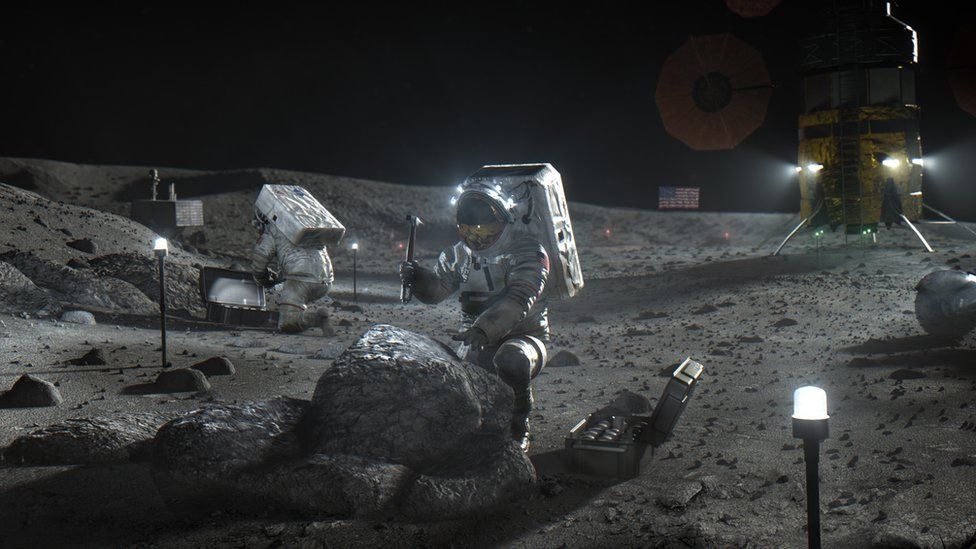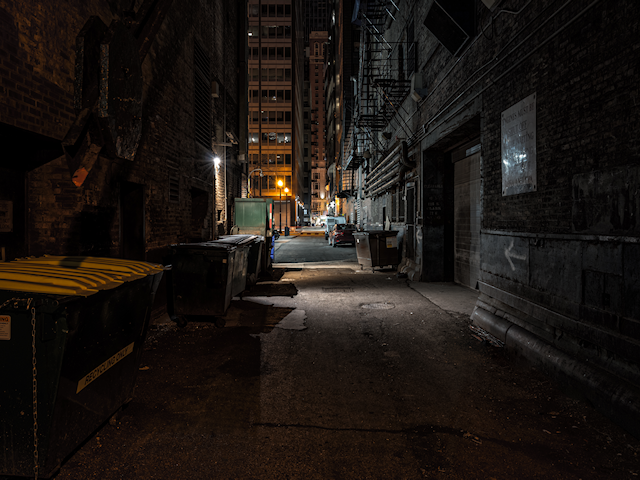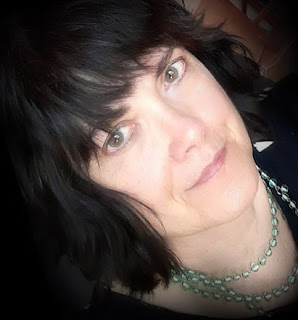“This is the most generous, most unselfish act you shall ever do, Gertie—”
“You may call me Mrs. Stroud,” the old woman interrupted. “I know how selfless and brave this decision is, as all the advertisements tell me, everyday, through every medium. I’ve read how gentle the stasis process is, how dreamy and comfortable a person feels when they’re ensconced within their posh little pod. How happy they are to be with their family again, when they’re thawed out for holidays and special occasions. How simple and painless it is to be reset in their little pods. How happy and free from worry their families are. Yes, I’ve seen the ads. And my oldest daughter, Trudie—she sings your praises every chance she gets.”
Davis—award-winning senior salesman that he was—quickly realized he’d have to either alter or altogether abandon his spiel with this client. She obviously didn’t need coercing or convincing; she’d already decided what she wanted. Now they just had to hash out the details. He understood he’d have to tread lightly around this one, careful not to stub his toe or step on a landmine. This was the part of the job he hated.
Mrs. Stroud cocked a thin, penciled eyebrow at him. “Well, are you just going to sit there with your mouth agape like some village idiot, or are you going to show me around? I want to actually see my options, not just read about them in some sappy brochure or saccharine online presentation. Now move!”
It was an old and accepted trope that most women mellowed with age—became beloved, kindly matriarchs. Not so with Mrs. Stroud. He’d already heard from her family that she’d evolved into a full blown harpy once she hit 70. Davis didn’t stand a chance; it was a good thing for him, and Elysian Fields, Inc., that she’d already made up her mind to do business with them.
“Right! Allow me, please. This way.” Davis stood and with a well-manicured hand motioned towards the door; with his other hand he casually smoothed back his golden blonde hair, an old-school motion older women found endearing, as most young men today opted for the smooth bald pate. The old birds usually responded to his classic-movie star good looks; most giggled behind tiny hands and twittered that he looked so much like a young Peter O’Toole circa his Lawrence of Arabia days. Davis didn’t mind this comparison of his looks, his manner—that’s why he was assigned to the elderly females. They reacted positively to him. It was an easy gig; that is, until he encountered a rara avis, like Mrs. Gertrude Epona Stroud.
Mrs. Stroud had been quite the successful, if cut-throat, businesswoman in her time, earning accolades with each promotion; as a mother, she was neither very successful or revered. But she didn’t care. For her, other people—especially relatives—were an inconvenience and a necessary burden to be borne with stoic, if ever-thinning, patience. But family money has a way of both assuaging hurtful childhoods and strengthening strained ties. And here she was now, on the brink of 80, still feisty and of an obviously sound mind, volunteering to be warehoused—likely to the collective relief of her family. Will wonders never cease?
Davis led Mrs. Stroud down a well-lit, spotless white corridor. They stopped before a room labeled, ‘Halcyon Spirit.’ He pressed his palm against a flat screen scanner embedded in the wall, and the door soundlessly slid open before them. Always the gentleman, he motioned for her to enter first.
“This area holds our top of the line, our crème de la crème,” he began in a soothing, almost sing-song tone. “Here, madame, is ‘Isis Ascending.’ Only the most socially well-connected, the most financially robust, are ensconced herein.” He walked over to a gleaming pink rose-colored pod, trimmed in gold gilt, with rococo flourishes. “Note the delicately frosted glass, etched with ethereal art nouveau embellishments, the Brazilian tulipwood frame, polished to a satiny sheen. This wood, I’ll have you know, was harvested from the deepest forest of the Amazon, and meticulously hand-carved to—”
Mrs. Stroud scoffed. “Looks like something they would have stuffed a dying Rudolph Valentino in before taking him on the road one last time. Surely you must have something simpler, something more modest? That is what I have in mind.”
“But of course!” Davis cleared his throat nervously. “This way, if you would.” He led her across the room to another pod, a more modernist unit. “This is our ‘Soaring Star.’ The pod itself is a tasteful creation of titanium adorned with appliques crafted from the purest grade platinum. The interior is lined with the softest white calf skin imaginable—it’s like butter. This pod’s beauty is admirably understated; it’s equally elegant and timeless. Perhaps this is more what you had in mind?”
Mrs. Stroud scrunched her bulbous nose, which had the effect of pulling in all her wrinkles to one central point in the middle of her face. Not a good look, but she got her point across without a word.
“No? Well, then, let’s move a bit further down the line to—”
“To something a bit less ostentatious. Surely you have something a little more humble? Something that says to visitors, ‘Here’s a gal from a frugal family, if ever there was one.’ Doesn’t your vast inventory include a pod that shouts ‘mediocrity’ to the very heavens above?” Mrs. Stroud turned and squinted at Davis. Her milky blue-eyed stare sent a shiver down his back. Good lord, what she must have been like in her prime! He could easily picture her with a sword and shield, leading screaming barbarians into bloody battle. She interrupted his wandering thoughts.“My daughter Trudie assures me Elysian Fields, Inc., not only has the greatest variety of pods, but also that they are all very well made. Surely she’s not wrong—Trudie’s never wrong, my dear Davis, and she’ll be the first to tell you that.”
Rather than show her more expensive pods here, Davis suggested they move to another area, where she might find something more to her taste. He turned on his heel and led her out of ‘Halcyon Spirit’ and down the hall to ‘Eternal Springs.’ If he was unhappy with such a wealthy client opting for cheap, he didn’t let it show. Perhaps her kids would talk her out of a lower-class pod, if he couldn’t. That happened sometimes, though sometimes the offspring were glad their folks went low-budget—meant more money left over for them. He smiled and palmed a new screen, opening the door.
Before he could speak, Mrs. Stroud made a beeline for a simple faux pine pod near the back of the room, one that used Plexiglas instead of glass, and plastic metallic trim intended to mimic polished brass. Davis groaned inside. This pod was the absolute bottom-of-the-barrel. His boss was going to kill him if he allowed Mrs. Stroud to choose this model.
“Oh dear, Mrs. Stroud, this model has been discontinued! I can’t imagine why it’s still out on the floor! I really should not allow you in this pod; we cannot guarantee its proper maintenance, as the techs are no longer trained to operate this model. It’s obsolete! It’s just too risky.”
Mrs. Stroud harrumphed, and examined the pod closely. She ran a bejeweled finger along the rough seam sealing the Plexiglas, and for the first time that day, smiled. “She’s named after me, you know.” Davis furrowed his sculpted brows, but before he could question or comment, Mrs. Stroud continued, “That cutesy moniker she uses, ‘Trudie,’ is short for Gertrude. My namesake. My first born know-it-all. She-who-would-be-queen-bee. She who thinks she’s going to run my business after I’m—” here Mrs. Stroud used air-quotes, “ ‘gone.’ She doesn’t appreciate that there’s still a lot of fight left in this old bird!”
For the first time in his lucrative sales career, Davis was at a loss for words. Family power struggles made him uncomfortable, even in fantasy novels and films. And as Mrs. Stroud abhorred silence in business negotiations, she refocused on the subject at hand with an appropriate question: “What’s this one called?”
It was all Davis could do to muffle his sigh of defeat. “We call this one, ‘Barn Owl.’ It was originally mass-produced and marketed to rural types; less worldly, less affluent customers who would appreciate a rustic—”
“I like it. This is the one.” Mrs. Stroud looked him in the eye, and for the second time that afternoon, smiled. “Lets get the paperwork moving, dear heart. After all, I have an opera to attend this evening.”
¤ ¤ ¤
It was not out of the ordinary for families to concoct their own, private ritual for the ensconcing of an elderly relative. ‘Ensconcing’ was the preferred industry term, as ‘warehousing’ sounded so cold and cruel, even if it was more accurate. Elysian Fields and their competitors wanted to make the experience as pleasant and nonthreatening as possible. So far, Elysian Fields set the gold standard. For the ritual ensconcing, they provided the music requested (sometimes with a live string quartet or mariachi band), catered a small banquet of delightful, favorite foods, provided elegant furnishings for comfortable seating, and banks of colorful flowers—unless the family preferred a lush display of greenery, if flowers seemed too funeral-like. Elysian Fields would provide said amenities for up to one hundred people, though the average attendance hovered around eight to twelve. Usually, families to like to keep the ensconcing ritual small and intimate, inviting immediate relations and close friends. So it was rather unusual that Mrs. Stroud only invited her eldest daughter, Trudie. But Davis had learned not to argue or insist with Mrs. Stroud.
“I prefer to keep things small, and under budget,” Mrs. Stroud stridently informed Davis. “That’s how I’ve kept my fortune,” she added, holding her head high, which served to emphasize her patrician profile. So there would be no lavish furnishings—only a couple of metal folding chairs. There would be no appetizing spread—only a card table with a small plate of saltines and a glass bowl with a handful of chilled pats of butter.. There would be no champagne fountain or nattily dressed bartender. She asked for a pitcher of unsweetened ice tea, with a couple of biodegradable paper cups. There would be no lush greenery, or floral arrangement—save for a single vase on the card table, stuffed with white carnations. She specified no music, other than what normally played softly in the background of the show rooms. Davis attempted to explain that more pleasant ritual options were available—were in fact included in the price of the pod—so she could easily—at no extra charge—invite more family, and friends even, and have a tasty spread, all for a more festive experience. Mrs. Stroud stressed that she was the paying customer, and she wanted what she wanted. The first rule in retail, she reminded him, is the customer is always right. Well, Davis rationalized, if she’s investing in the cheapest pod, at least she’s not demanding an expensive spread—which saves a tidy bit money for Elysian Fields. Maybe his boss would be happy with him, after all.
¤ ¤ ¤
The ensconcing day came, and Davis escorted Mrs. Stroud and her middle-aged daughter to the room christened, ‘Merlin’s Sleep,’ where Mrs. Stroud’s little party and pod awaited. The old lady insisted that Davis join them, which was unusual for a client. Davis wondered if the old gal had regrets now at not inviting more people. Or, the sad thought occurred to him, maybe she had no friends and very little family—either because by her age they’d all passed away, or moved away, or maybe they’d evolved into enemies over the long years. That happened sometimes. He graciously agreed to join them.
There was little small talk—Trudie did not hide her resentment towards Davis’ presence, or her impatience with her mother. She kept looking at the time on her phone, and sighing loudly.
“Trudie, dear, why don’t you have a cracker?” Mrs Stroud offered, suddenly appearing frail and small and needy. “Or have a seat; we’re in no hurry here, child. We have until 5 o’clock,” the old woman added quietly, placing her hand over her heart.
Trudie sighed again and threw her hands up dramatically. “Mom, I told you on the way over, I have to be at Carson’s long before then. I promised I’d help him close the Bisbee Cantina deal.”
Mrs. Stroud scoffed. “Your brother Carson’s a big boy—he can manage on his own. He’s done so before—and very well I might add. Your place is here, with me, missy,” Mrs. Stroud stood up and drifted over to her pod. She looked at Davis over her shoulder and smiled a small, cryptic smile. He wasn’t sure how to take it, but there was a part of him that was glad to see Mrs. Stroud return to her former, strong-willed self.
“Davis, please help me open this thing,” she tersely ordered. “Seems my daughter Trudie has better things to do than be here with me.” Davis deftly punched in a code on the side panel of the pod, after which, with a slight hiss, its door popped open.
“At least come over and see how it looks inside, Trudie. Come over and kiss your old mother good night,” Mrs. Stroud pleaded with tears brimming in her eyes. In response, Trudie rolled her eyes and stomped over to the pod like a petulant teenager. Davis had never witnessed such a display of immature, uncouth behavior at an ensconcing ritual. His heart bled for Mrs. Stroud.
“Okay, yeah, it looks comfortable enough, though you’ll be asleep and won’t really care.” Trudy snorted. “I’ll take good care of the business while you nap, so don’t fret, if that’s what’s wrong with you,” she added coldly. This mean old crow was out of touch and past her prime, Trudie often thought, smugly, to herself. Time to pass on the reins of power; it was all she could do to keep from smiling at the thought.
Mrs. Stroud straightened her back and turned to her daughter, her manner like a monarch addressing a traitor to the realm. “What’s wrong with me, child, is that my first born is a grasping, ungrateful, conceited viper, who doesn’t know nearly as much about the family business as she thinks she does. A business I built on my own; a business that is my legacy.”
Before Trudie could spew her pithy reply—one one she’d been saving up for years—Mrs. Stroud, now acting with surprising quickness and strength for a woman her age, shoved Trudie into the pod, slammed the door shut, and pressed the ‘set’ button the side.
“Mrs. Stroud!” Davis gasped. “Your daughter Trudie will be—she won’t wake up until—”
“Exactly,” Mrs. Stroud answered curtly, like a schoolmarm impatiently tutoring a dull child. “That was the plan all along. Surely,” she continued, lifting her chin imperially,“you didn’t think I was going in there!”
__________________________
With an MA in English Literature, Hillary Lyon founded and for 20 years served as senior editor for the independent poetry publisher, Subsynchronous Press. She is the Assistant Art Director for Black Petals, and a Rhysling Award Nominated Poet. Her horror, scifi, and crime short stories, drabbles, and poems have appeared in numerous print and online publications such as Theme of Absence, Shotgun Honey, and Tales from the Moonlit Path. She’s also an illustrator for horror/sci-fi, and pulp fiction sites. To learn more, check out: https://hillarylyon.wordpress.com/








































